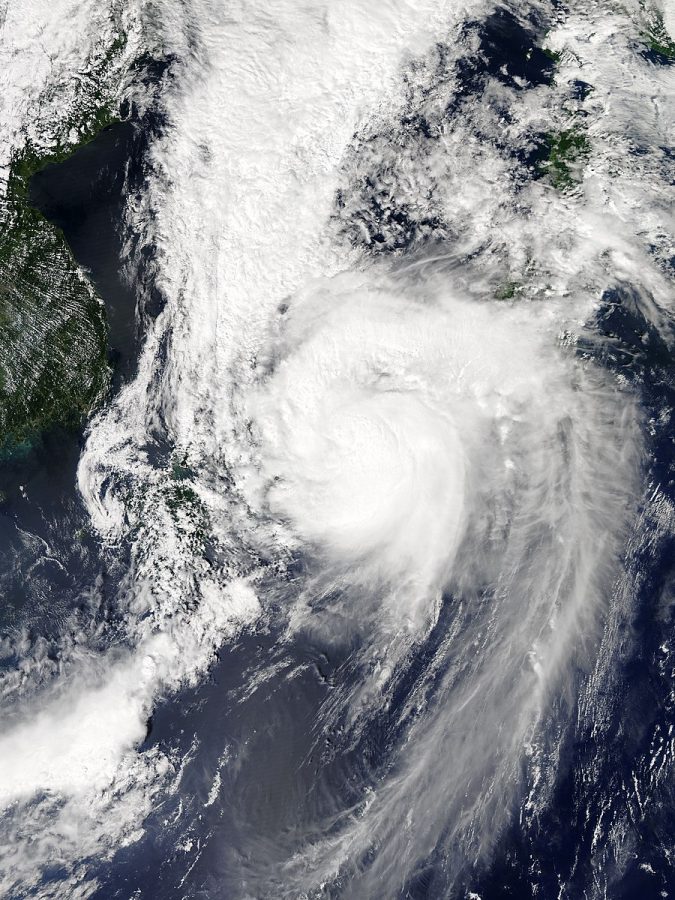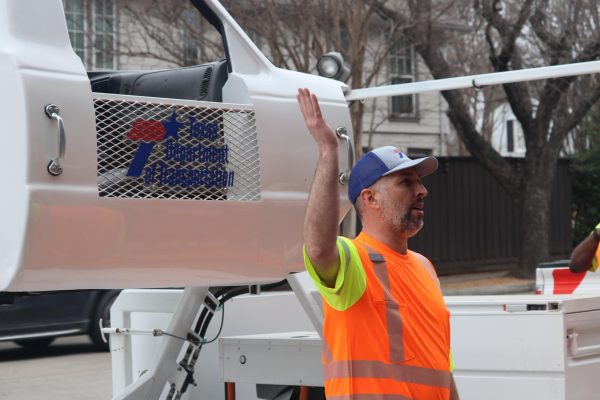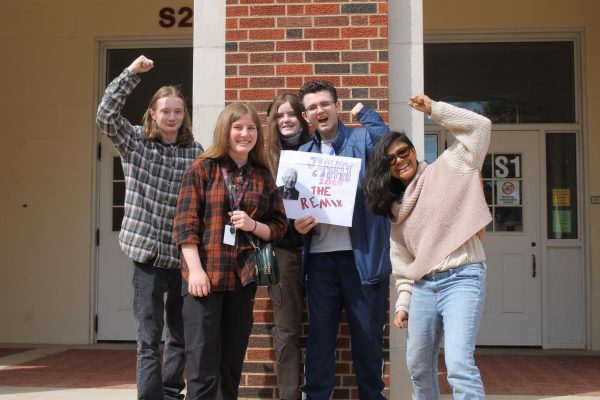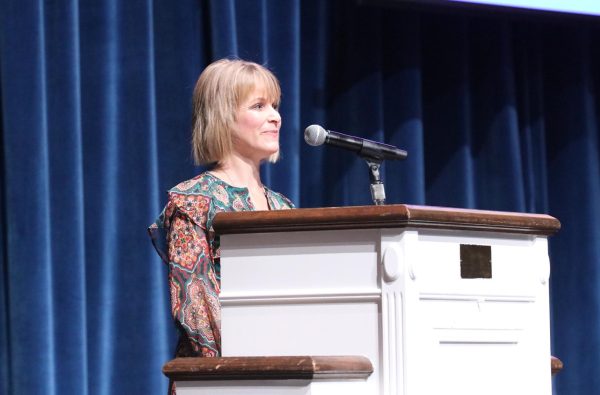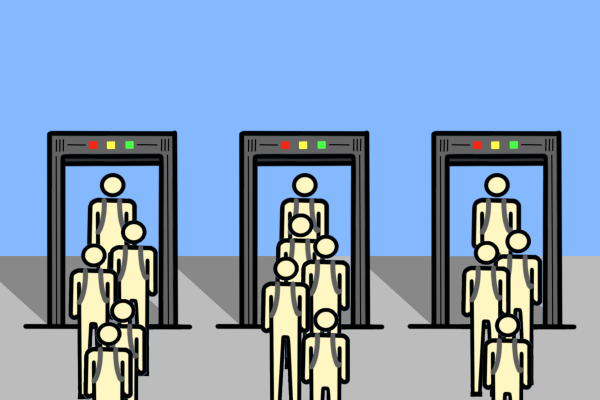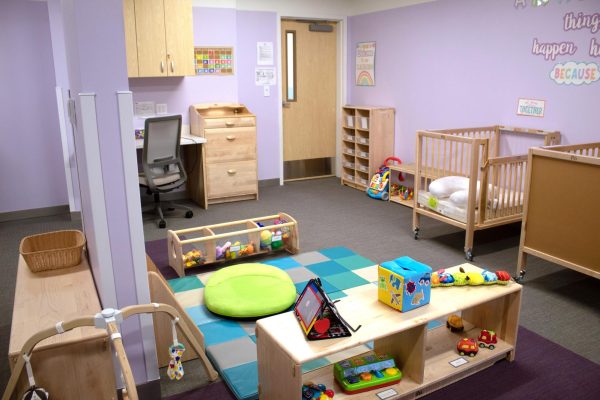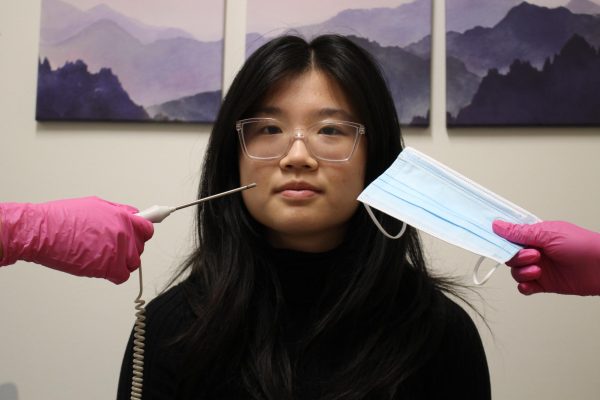Typhoon Jebi hits Japan
Several natural disasters cause damage
Typhoon Jebi, the worst typhoon to reach Japan in 25 years, hit the west coast of the mainland on Sept. 4. The storm killed 11 people and injured 600 others. Before typhoon Jebi reached land it was a category five, but by the time it hit Japan it had weakened to a category one. However, several factors helped maximize the wind gust speeds to over 100 miles per hour in some places. Cars were turned over and power outages affected a large portion of the country. Kansai Airport was affected by the typhoon by a storm surge of about 11 feet, from record speed wind gusts. The water submerged the runways completely, which lead to about 400 flights being canceled.
“Equipments and machines were damaged by the flooded water in a part of the terminal. We don’t know when we can re-open,” Yamaguchi said in a CNN article.
During the typhoon a tanker hit the only bridge connecting the airport, which is situated on a man-made island in Osaka Bay, to the mainland. This closed traffic to the airport as well as trapping thousands of people in the airport terminal until ferries and buses could safely get them and take them off the island.
“We geared up for a typhoon, but the typhoon was far stronger than we had expected,” said Yoshiyuki Yamaya, the president of the airport’s operator, in a New York Times article. “We were too optimistic.”
A 6.7 magnitude earthquake damaged areas of Japan just days after the Typhoon on the island of Hokkaido, killing at least 39 people and injuring over 600 hundred. The earthquake left Japan with landslides,which caused damage to houses and blackouts to millions. Flights were cancelled for over a week at the nearby airports.
In July Japan was affected by torrential rainfall, with landslides and flooding. This was named the worst natural disaster to hit the country since 2011. Japan also had record high temperatures during the summer. In Tokyo, the temperature raised to 105.98 degrees fahrenheit, 12 degrees higher than average summer temperatures in Japan.
“If we go back far enough we can see things happening on these lines but globally we’re definitely seeing more extreme events, because the oceans are warming; there’s more moisture in the atmosphere,” said Doug Bausch, Senior Science Adviser of the Pacific Disaster Center, in an interview for CNN.
Many in Japan are wondering if the islands will continue to get hit with natural disasters. Seismologist Robert Geller said it’s likely to get worse and it should be expected that this is the new normal. Every natural disaster Japan has however, is a opportunity to learn and improve safety in the country.

This is my third year with the Bagpipe.
What are you involved in at the school?
CHOW club, National Honor Society, National English Honor Society, National Chinese Honor Society
What is your dream job?
Elementary school teacher
What is your favorite music genre?
Country



